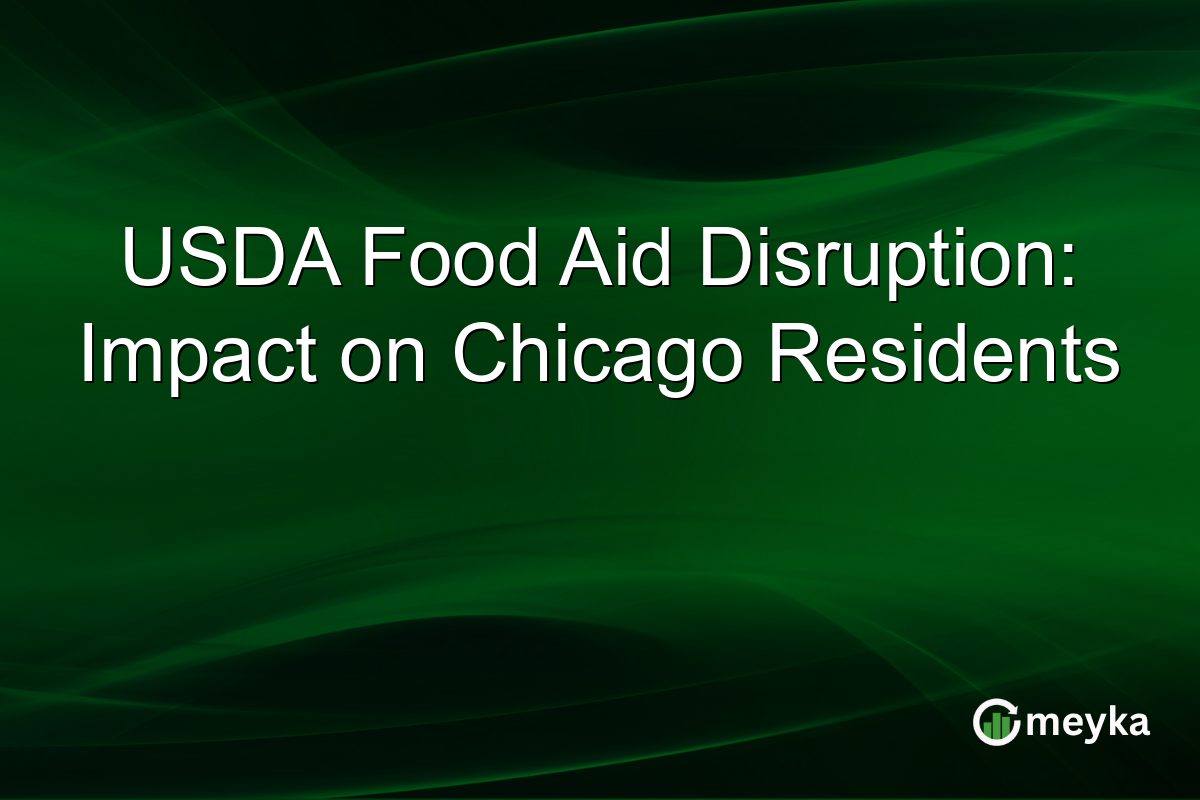USDA Food Aid Disruption: Impact on Chicago Residents
The USDA has announced a suspension of federal food aid starting November 1st due to the ongoing government shutdown. This USDA food aid disruption brings significant challenges, especially to Chicago residents who rely heavily on this assistance. It highlights the critical role of government programs in ensuring food security for vulnerable populations across the nation.
Understanding the USDA Food Aid Disruption
The USDA’s decision to halt federal food aid comes as part of broader government shutdown effects, impacting thousands of families relying on programs like SNAP in Chicago. As of now, these benefits are used by over 1.8 million Illinois residents, signifying the gravity of the situation. Without this aid, families must find alternative means to secure daily meals, increasing pressure on local food banks and community organizations.
For more details on the affected services, you can refer to recent local news reports.
This news has caused an outpour of concern over social media, reflecting community anxiety and the urgency for quick solutions.
Impact on Chicago Food Assistance
With this federal aid disruption, Chicago food assistance programs face unprecedented pressure. Local food banks reported an increase in demand by 35% since the announcement. These organizations are calling for volunteers and donations to fill the gap.
The city government and local NGOs are working tirelessly to mitigate the impact, but resources are thin. Mayor Lori Lightfoot has urged the federal government for a resolution, emphasizing the critical nature of this aid for many Chicago families.
Check the latest discussions from relevant platforms to understand the broader community reactions and proposals for immediate action.
Legal and Policy Implications
The USDA food aid disruption also carries significant legal and policy concerns. The suspension highlights the dependency of local communities on federal aid and the vulnerabilities that arise during a government shutdown. This scenario pushes city leaders and policymakers to explore alternative measures to safeguard food security.
Chicago’s local government might seek state-level intervention or temporarily fund critical food programs. This highlights a potential policy shift towards more self-reliant city strategies in the face of federal uncertainties. Observers suggest increased advocacy for more autonomous local food support systems.
Final Thoughts
The USDA food aid disruption underscores an urgent issue within Chicago, reflecting broader national challenges. As local agencies strive to meet increased demand, this situation reveals the fragile nature of food security among vulnerable populations. It’s a clarion call for more sustainable, locally driven solutions even amidst federal uncertainties. By focusing on strengthening local support networks and securing alternative funding, Chicago can mitigate the impact on its residents and pave the way for more resilient strategies in the future.
FAQs
The suspension impacts over 1.8 million users of programs like SNAP in Illinois. Chicago families face increased food insecurity, with local food banks experiencing over a 35% surge in demand.
The shutdown affects essential services, notably federal food aid, leading to heightened demand on local food assistance resources and relying on community support to fill the gaps.
Local organizations and the government are urging donations and volunteers. Additionally, they aim to provide short-term solutions while advocating for governmental intervention and more robust, community-centric strategies.
Disclaimer:
This is for information only, not financial advice. Always do your research.






